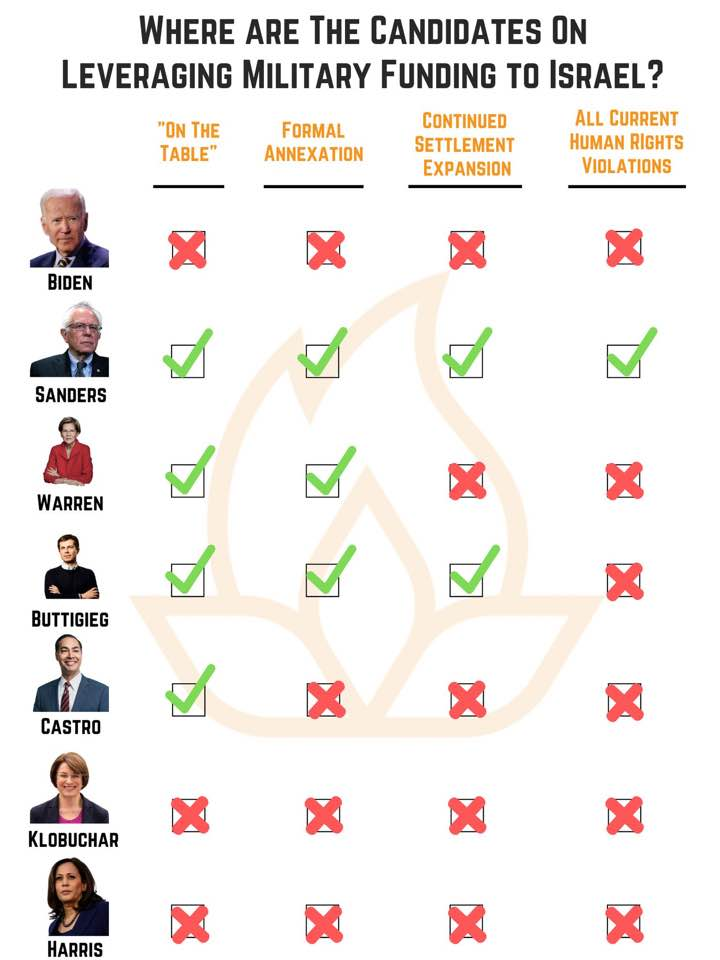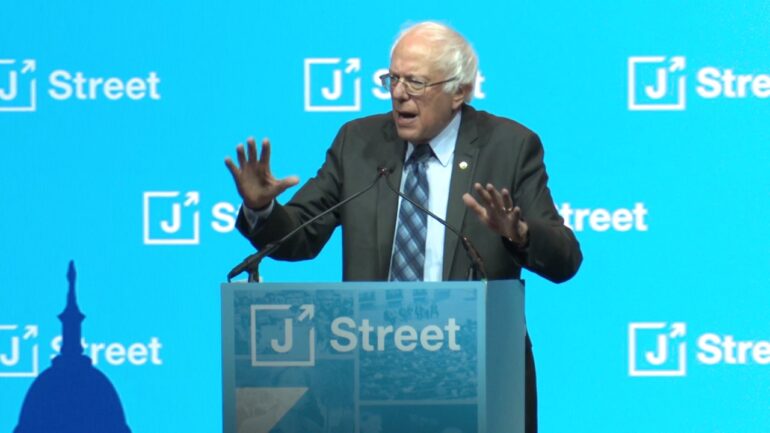Over the past week, my Facebook timeline has been bombarded by a slew of posts regarding the “new willingness of Democrats to condition aid to Israel.”
While such articles and headlines have been prolific in recent months, it culminated with J Street’s recent national conference where many of the presidential candidates spoke on the issue.
Many people posting and commenting with joy that finally the debate on Israel-Palestine has shifted to this point, that we can finally discuss using the almost $4b annual “aid” package as a tool to force Israeli policy one way or another depending on the whims of the United States president.
There are many things that can be said about this, but I will focus on two.
The first is that I am not for using this money as a tool to push US imperialism. I see American aid to Israel as no different than how Western nations use “aid” anywhere else in the developing world, as a form of neo-colonial control. I am against Washington giving it, for several reasons, and I think Israelis should vehemently reject it.

Second, and perhaps this is a result of my age and cynicism, but I don’t believe a word these politicians are saying. American political culture has a strange way of creating cults of personality, to the point people actually believe politicians and their campaign promises.
Politicians, regardless of where they fall on the spectrum, tend to say what they think their constituents want to hear. The Democratic party has shifted ever so slightly on the issue of Israel/Palestine to the point that this conversation is now, at most, a conversation.
Hence, when presidential candidates go to a J Street conference, they are going to preach to the choir, and the J Street choir wants to use American money as a tool to push US interests in the Middle East.
What are these US interests? On a macro level it’s about power and control. Washington has a strategic interest (in the most basic power structure sense) in being actively involved in Middle Eastern affairs. As part of maintaining power and influence in the region and world at large, the US has become and maintained its status as the world’s number one arms supplier. As part of the agreement on the aforementioned aid, Israel must spend over 90% of that nearly $4b on American arms and military technology.
Due to this fact, I find it amusing that in addition to the desire to exert US interests in the region, those who support making this aid conditional think this could actually happen.
Why amusing? Because the real lobby muscle behind military aid to Israel isn’t actually AIPAC but rather America’s military industrial complex. The US arms industry is one of the largest and most strategic aspects of the American economy. It hires hundreds of lobbyists, spends many millions of dollars, and instigates conflict worldwide because it is their business to sell war. Why would an American politician want to take on an industry that is perceived to be vital to the US economy, vital to security, and vital to maintaining American dominance?
No American politician is going to cut off the nearly $4b to Israel. It doesn’t matter if Israel annexes the West Bank or not because it’s not about Israel so much as about American jobs. Does J Street really think a politician is going to take on the US weapons industry and be responsible for hundreds or thousands of Americans losing their jobs in what’s considered a critical sector of the US economy?
This logic seems completely backwards to me.
There was this great scene in Syriana (I know, a big let down overall, but it had its moments), where Matt Damon was talking to a prospective ruler of a Gulf country who he was trying to convince to liberalize their country. The prince says something along the lines of “I want to have a parliament, give women the right to vote, etc. it all sounds great… but then what will happen? Your president will call my father and say ‘I have unemployment in the Midwest’ and suddenly we are overpaying for planes we do not need.”
The implication being that being an “ally” of the United States means buying weapons at the expense of the local economy and the material needs of its own population. Israel is not immune to this and is in fact is a prime example.
One of the big slogans J Street and Liberal Zionists who push this narrative is that “America needs to regain its neutrality” in the conflict and behave as an “honest broker.” I don’t want to waste time arguing whose side Washington is on in the conflict, because ultimately it’s on its own side. But the real point is that the pieces all add up to increasing US involvement in the region, which has proven to bring with it war, dependency, and the perception of intractable conflict. When we factor in the specifics of Israel/Palestine, US involvement means an agenda of partition – which is something we should all be actively fighting against.
At the end of the day, the aid can only realistically be ended by the recipient – in this case Israel. Allowing Washington so much control over Israeli affairs has done nothing to advance actual justice or equality in the region. In fact, US involvement has only exasperated the conflict and more deeply entrenched the status quo. Israel making the decision to forgo the “aid” would actually free Israelis (and ultimately Palestinians) from the “leverage” of imperialism.





